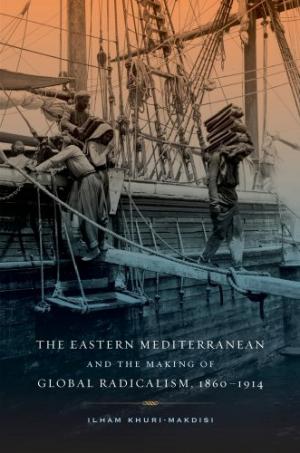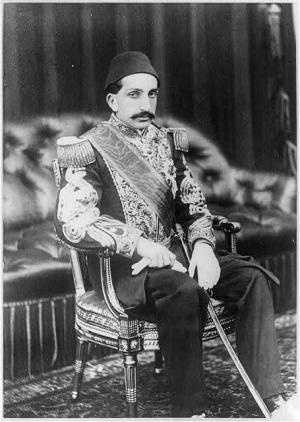The era of the late nineteenth century and early twentieth century in the Levant, became known as the period of the ‘Nahda’- the Arab renaissance.  New ideas flourished and the emergence of Arab nationalism is often attributed to this time and place. Ilham Khuri-Makdisi has written an intellectual history of this period from an angle neglected so far, that of radical-leftist thought. Khuri-Makdisi focuses on three cities: Beirut, Alexandria, and Cairo, which maintained special connections as cosmopolitan centers, and she links the roots of radical movements found in these cities with early globalization.
New ideas flourished and the emergence of Arab nationalism is often attributed to this time and place. Ilham Khuri-Makdisi has written an intellectual history of this period from an angle neglected so far, that of radical-leftist thought. Khuri-Makdisi focuses on three cities: Beirut, Alexandria, and Cairo, which maintained special connections as cosmopolitan centers, and she links the roots of radical movements found in these cities with early globalization.
The narrative challenges previous perceptions that identified radical thought as a European product. As Makdisi shows, it started simultaneously in Europe, the Middle East, and the urban centers of Latin America. She chooses to focus on the Anarchist movement that both competed with Marxism as an international ideology and manifested itself in popular culture. More importantly, anarchism helped give rise to a new social order: the intellectual middle class. Under Sultan Abdul-Hamid II (ruled 1876-1909), the Ottoman Empire witnessed major social and political changes. Makdisi breaks down these changes to smaller components: the international networks that developed under anarchist notions, the development of the press, and the construction of institutions to disseminate anarchist ideas. The contributions of the anarchist movements in this period included mass education, mutual aid societies, and intellectual centers. The theatre, for example, functioned as a “subversive institution” used by the movement to raise general awareness about its international networks. Makdisi points to a play about the anarchist movement in Spain that gained great success in Beirut. She also dedicates part of the story to diaspora communities and their place in the international movement, thanks to the connections they had in their homelands. 
Anarchist movements are often regarded as the most radical form of political and social activity; this book, however, reminds readers how significant and mainstream the institutions that they established are. The successful use of interesting and varied sources, the prose, and the engaging story make this book to a worthy read.
Further reading:
Ilham Khuri-Makdisi’s faculty page at Northeastern University.
H-Net review of The Eastern Mediterranean and the Making of Global Radicalism.
A collection of articles on the subject.
Image caption: Ottoman Sultan Abdul-Hamid II photographed in 1867, via Wikimedia Commons



